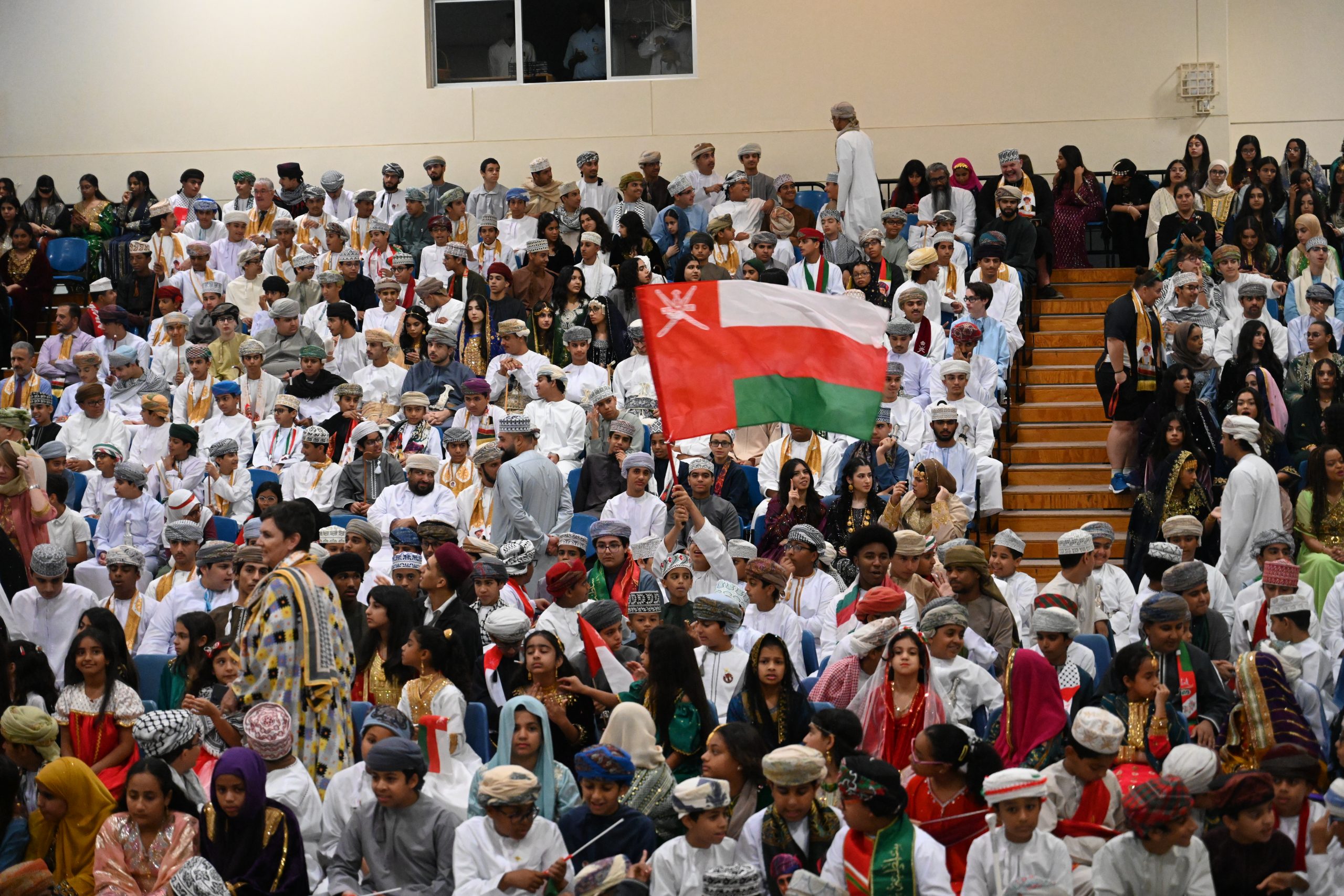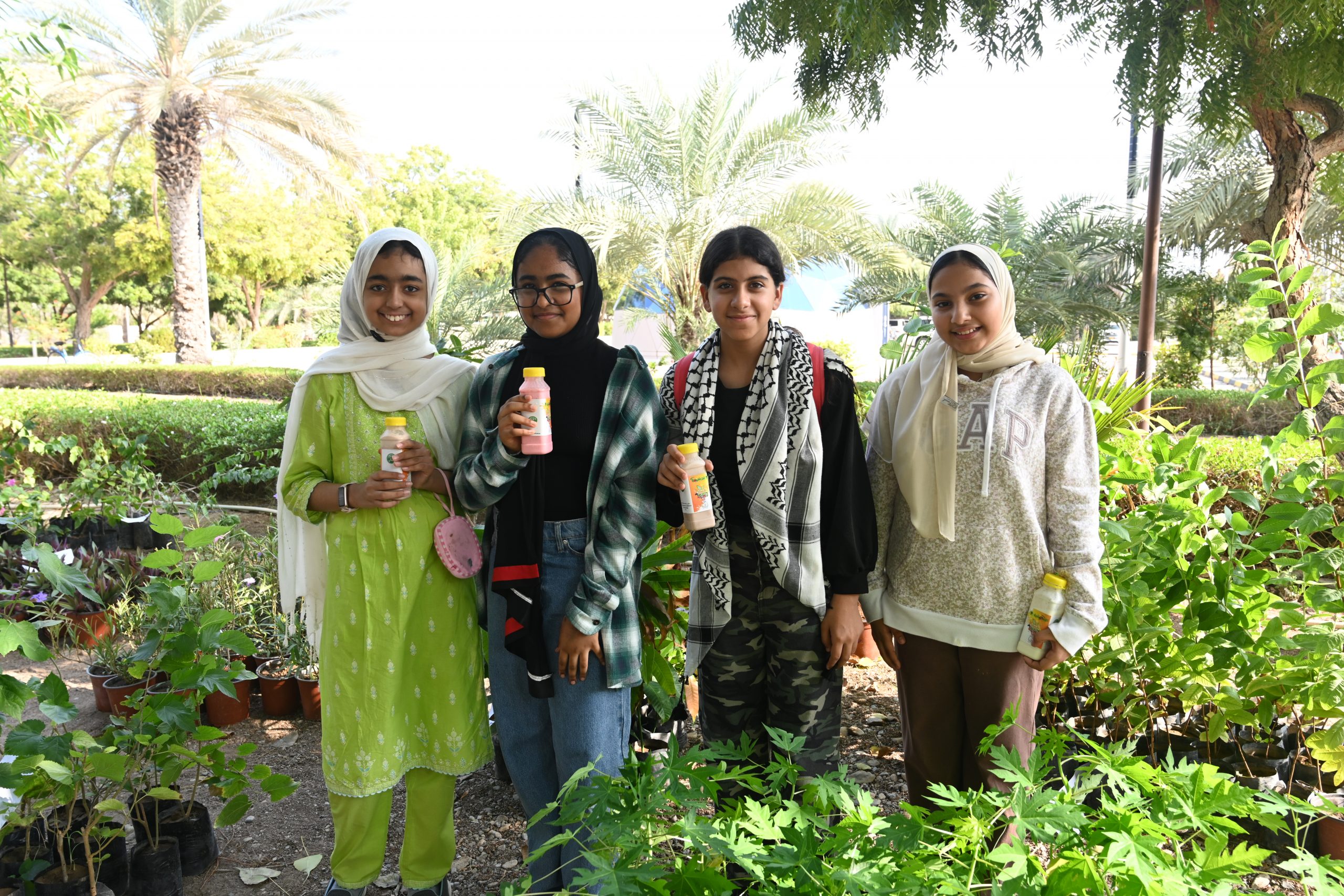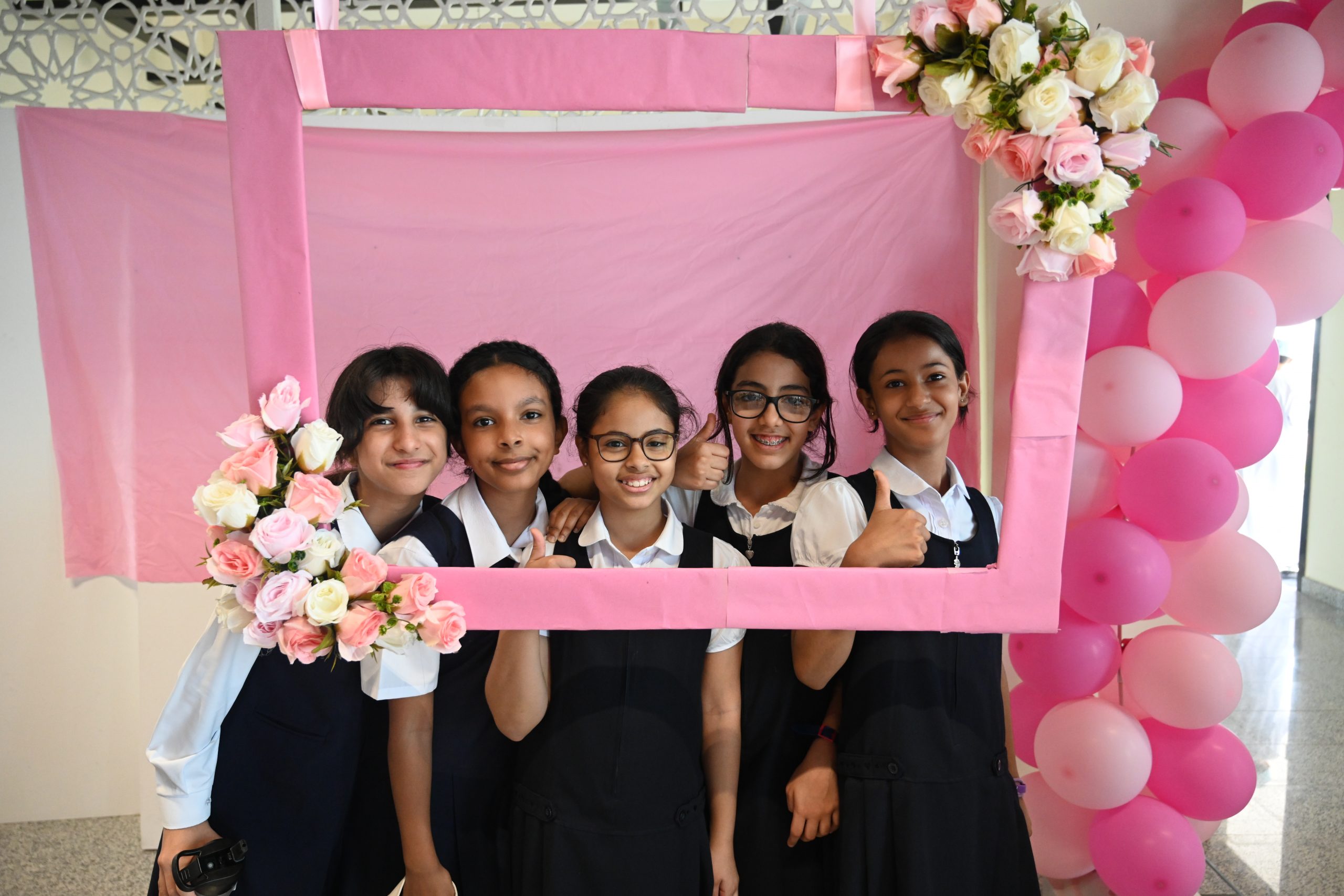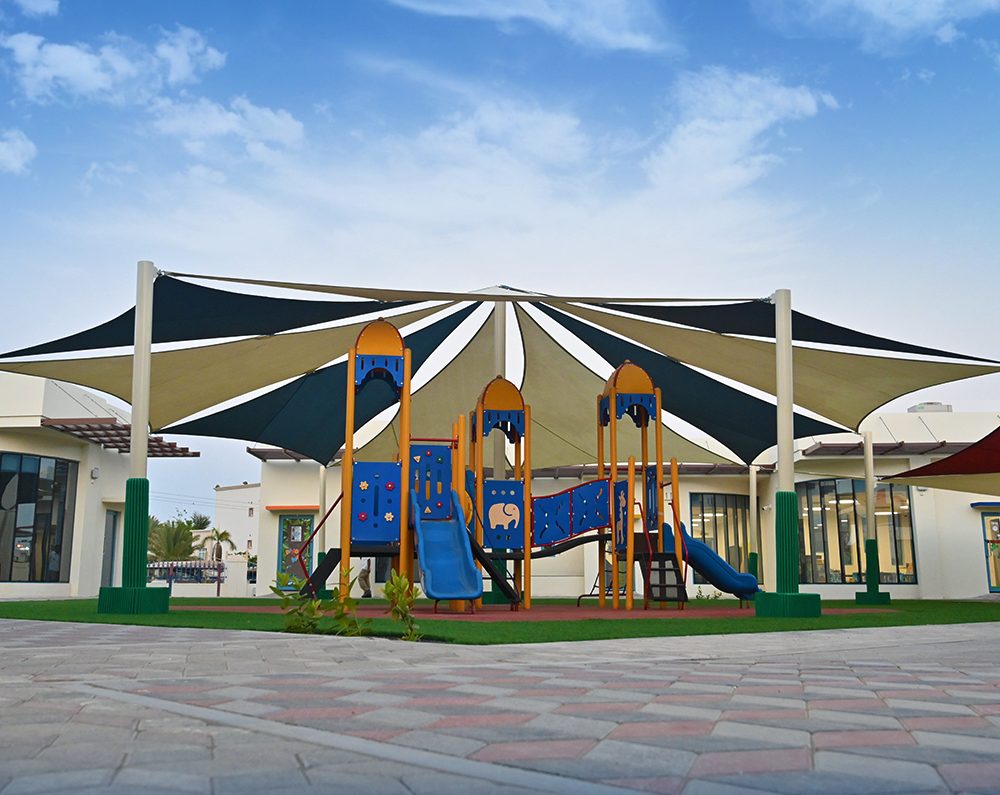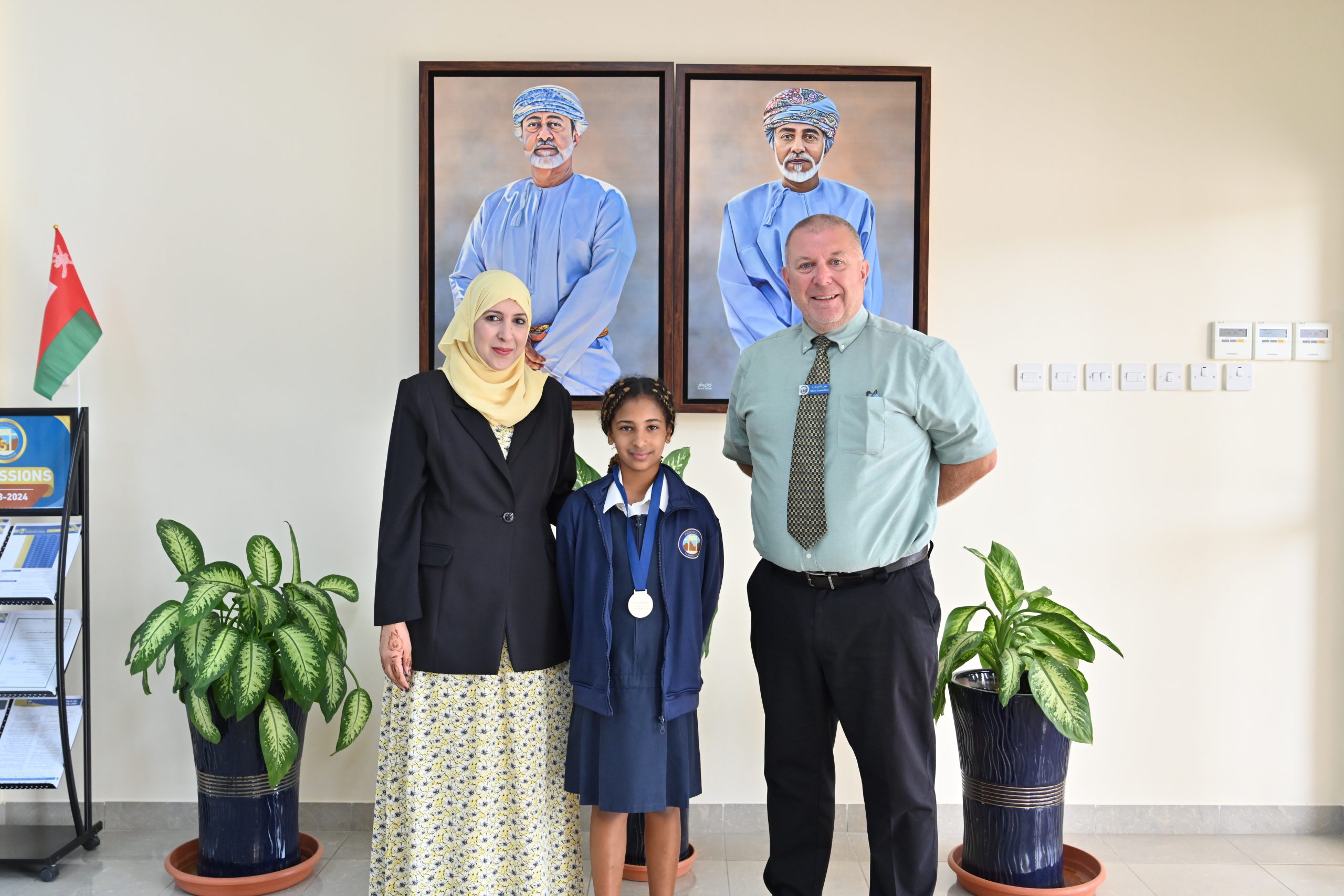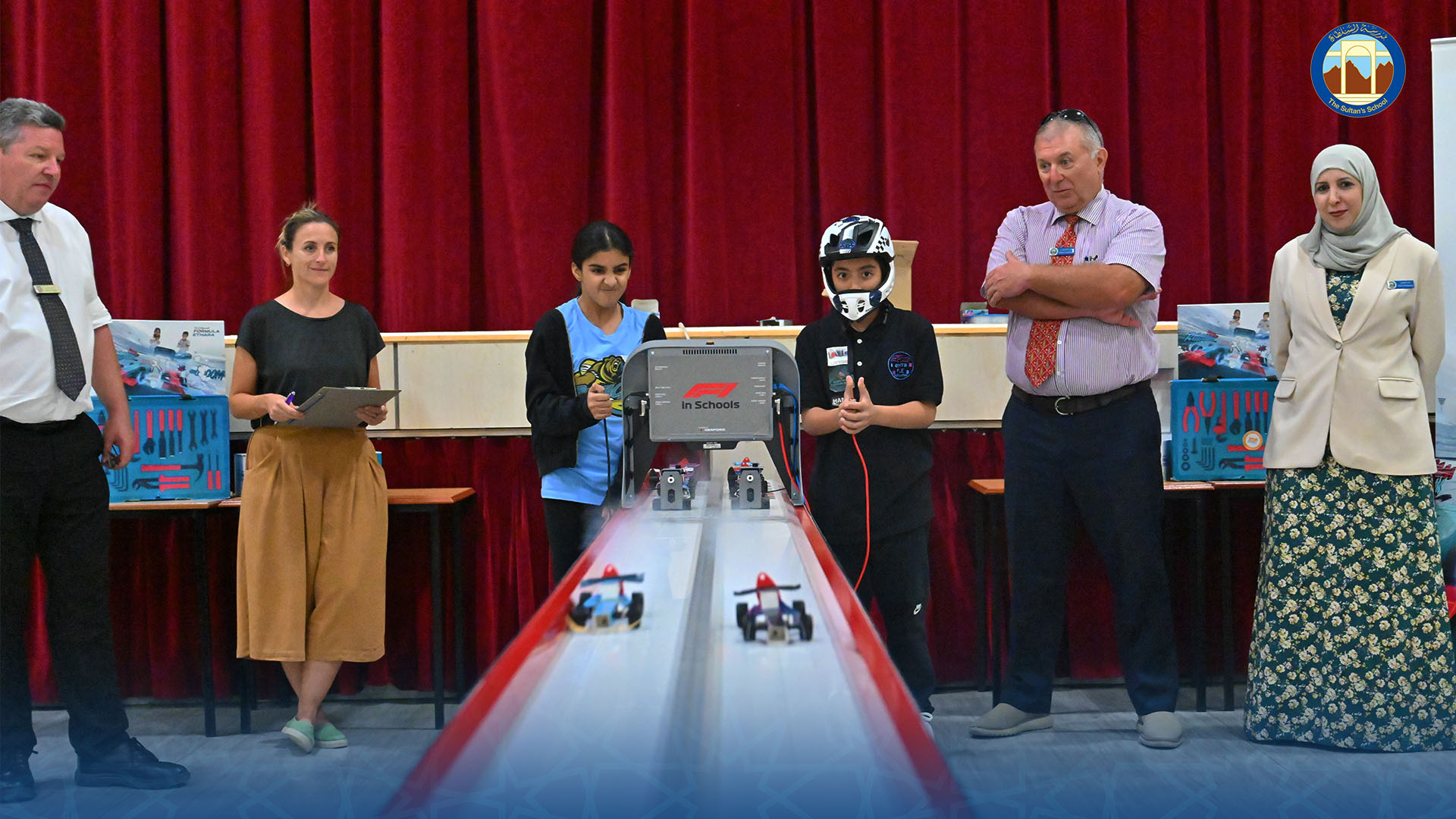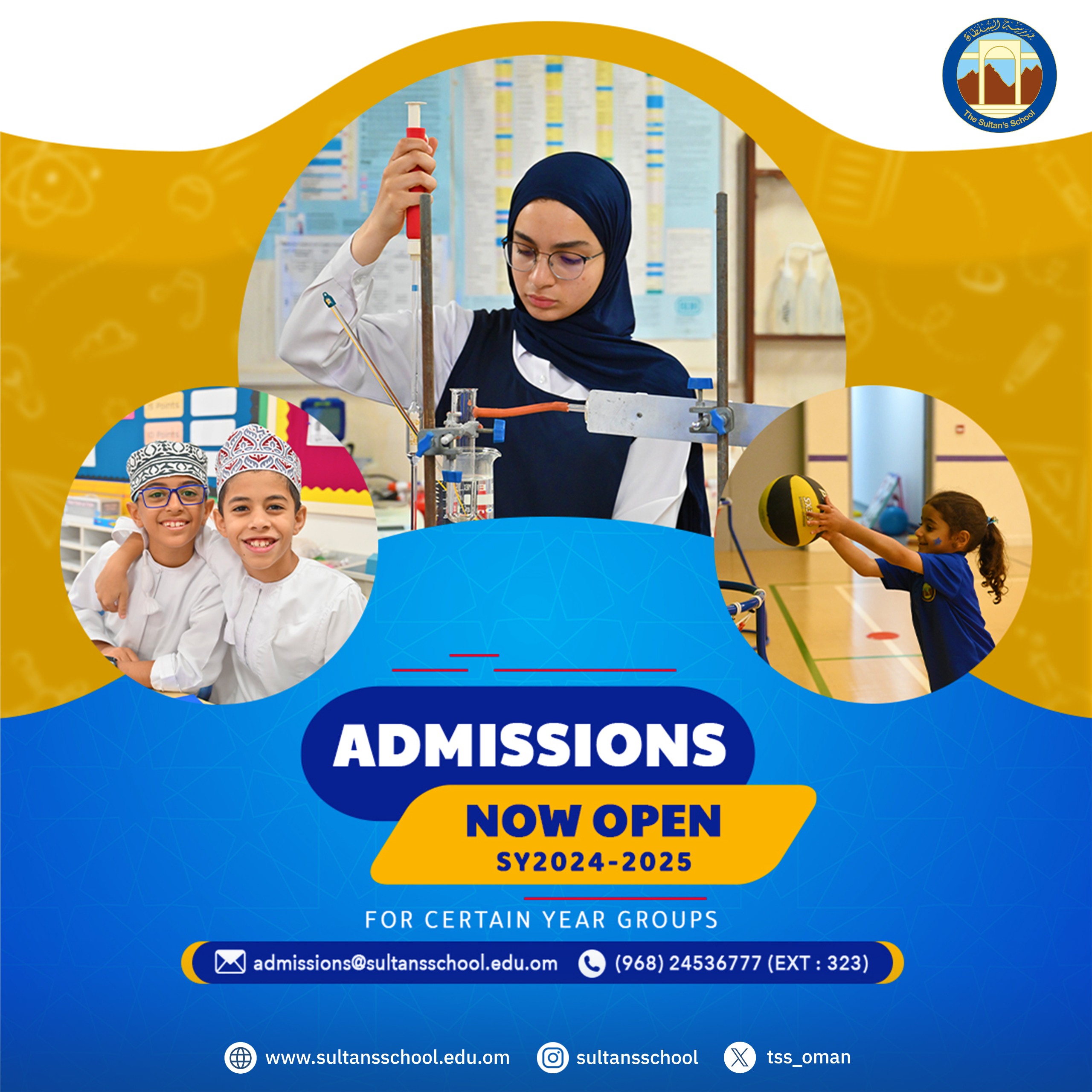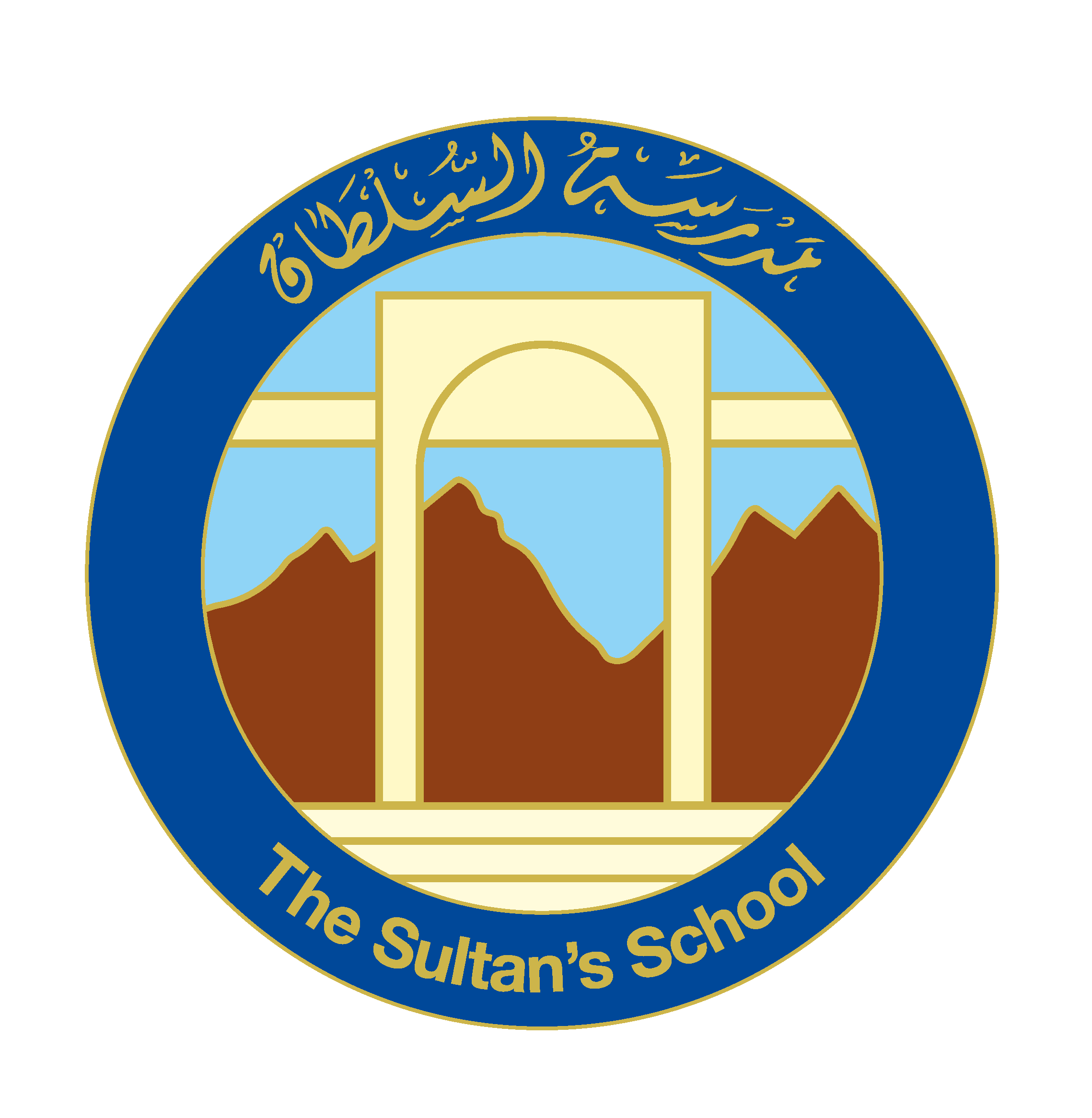Lorem ipsum dolor sit amet, consectetur adipiscing elit. Nulla eu dignissim neque. Donec in ex magna. Vestibulum dignissim dignissim nisi in varius. Pellentesque placerat sed libero in interdum. Morbi vehicula maximus magna, vitae gravida lorem porttitor nec. Integer dignissim nisl nec diam pellentesque, id porttitor tellus rhoncus. Interdum et malesuada fames ac ante ipsum primis in faucibus.
Download block targets
In Years 1 – 6 your child will study six core subjects and four additional specialist subjects. The core subjects are:
- English
- Mathematics
- Science
- Arabic
- Islamic Studies
- Social Studies (begins in Year 3)
The additional specialist subjects are:
- Music
- Art and Design
- Information Communication Technology – ICT
- Physical Education
ARABIC
We use the Ministry of Education curriculum as our minimum standard. In addition to the syllabus book, “Uhibbu Lughati” which is published by the Omani Ministry of Education, we use selected books and booklets prepared by the teachers to support learning.
Our main objectives are to:
- Read Arabic with confidence and enable them to develop a love of reading and literature
- Develop an increasing confidence in sentence structure, punctuation and spelling
- Teach the students writing skills so they can express themselves clearly and accurately
- develop a fluent and legible style of handwriting
- Instil in them an appreciation of their language and its religious and social heritage
We help the children achieve this through:
- Daily reading from a wide range of sources
- Group discussion and interaction.
- Introducing them to a growing range of word structures to develop reading, writing and spelling skills
- Helping them understand and interpret texts.
- Helping them engage with and respond to a wide variety of texts
- Teaching them to create texts for a wide range of purposes
- Teaching sentence structure and punctuation skills
- Encouraging them to develop a strong handwriting style and take pride in presentation.
Through a systematic programme of grammar exercises we work to deepen each student’s understanding of the topics explained in class. Special and intensive exercises are given to the students who require additional support in their Arabic; we ask that these students be encouraged to do these exercises seriously and carefully.
We use:
- A variety of audio-visual aids.
- Educational games.
- Selected books.
- Grammar and spelling exercises.
- Training exercises on writing and handwriting.
ISLAMIC EDUCATION
A child’s spiritual education is a vital aspect of their development and at school we wish to make a significant contribution to their knowledge and understanding. Our curriculum is based on that supplied by the Ministry of Education and in our lessons children are helped to:
- Memorise assigned verses from the Holy Qur’an
- Memorise some of the Prophet’s (Peace be upon him) sayings (Hadith)
- Recite specified verses according recital rules
- Learn an increasing range of relevant vocabulary
- Study the holy texts, and through discussion develop an increasing understanding of their faith
- Learn how put into practice what they have learned.
A wide range of teaching resources is used to strengthen the curriculum. These include syllabus books and religious stories approved by the Ministry, training exercises, CDs and resources from the Internet.
SOCIAL STUDIES
We use the Ministry of Education curriculum as our minimum standard. Students study aspects of geography (Oman and the world) and history (Omani, Arabic and Islamic civilisation) and are asked to learn certain concepts and information from the lessons. Special terms are taught which are linked to the topics, to develop the student’s understanding of the geographical features or historical events studied and to encourage them to appreciate the importance of their heritage.
Our main objectives are to:
- provide students with knowledge and understanding about the local community, the Arabic and Muslim World
- develop an appreciation of their Omani and Islamic heritage
- recognise the topography of Oman, Arab countries and the world
- develop a spirit of citizenship
- an awareness of their environment from various aspects: the village, town and city, from home and school
- learn to read maps and use them
The key resources we use are:
- Al-Dirasat al-Ijtimaiyya, the syllabus book, published by the Omani Ministry of Education
- Maps and educational films related to the subjects, e.g. Encarta Encyclopaedia
- Atlases of Oman and the world
- Educational games
| If you have any questions about the Arabic subjects, please contact Mr Khalid, the Arabic Primary Deputy: |
ENGLISH
In Key Stages 1 and 2 we are creating our own curriculum which is based on the United Kingdom National Primary Framework for Literacy and the very best of modern and traditional practice.
Twelve strands of learning make up our English Framework:
- Speaking, listening and responding
- Group discussion and interaction
- Drama
- Reading
- Spelling
- Word structure and spelling
- Understanding and interpreting texts
- Engaging and responding to texts
- Creating and shaping texts
- Text structure and organisation
- Sentence structure and punctuation
- Presentation.
We want our children to develop a progressive confidence and fluency in their English skills. Therefore, through carefully constructed blocks of work, elements from the twelve strands are interwoven to achieve this objective. Our children are taught to:
- read with confidence and understanding
- speak and discuss with clarity and purpose
- develop a growing awareness of sentence structures and grammatical constructions
- use language creatively through drama and poetry
- adopt strategies to cope with the wide variety of English spellings
- write for an increasing range of purposes
- develop a fluent and legible style of handwriting.
The curriculum is supported with a wide range of resources. These include:
- a range of reading schemes
- various texts
- educational games and activities
- the Primary Library
- audio visual aids
- Internet resources.
Progress is monitored through the children’s class and homework, weekly spelling tests, and end of unit writing assessments. They also have annual standardised tests in reading and writing.
If you have any questions about the English curriculum, please contact Ms Beverley, the Head of Primary English: beverlyc@sultansschool.edu.om
MATHEMATICS
Mathematics equips pupils with a uniquely powerful form of communication to analyse, view and change the world. Pupils who are confident in mathematics are able to think independently in applied and abstract ways, and can reason, solve problems and assess risk.
As with English our curriculum has been developed by adopting the best of the United Kingdom National Primary Framework for Mathematics. The Mathematics Strategy is broken down into seven strands of learning:
- Using and applying mathematics
- Counting and understanding number
- Knowing and using number facts
- Calculating
- Understanding shape
- Measuring
- Handling data.
We want the children to develop a strong mathematical understanding with the ability to handle numbers confidently. If solid foundations are established in Primary, these will help the children progress confidently in secondary maths, science and other subjects.
The children are taught to:
- develop a growing understanding of number and the four key rules which enable us to manipulate them (+, -, x, ÷)
- record mathematical operations in a clear and effective way
- learn number facts to enable them to perform calculations quickly and accurately (times tables)
- develop their abilities to work with numbers mentally
- estimate and measure with confidence
- develop an understanding of shape and geometry
- handle and analyse data
- think!
- enjoy maths!
The emphasis in the KG and Years 1 and 2 is on practical work, to ensure that key fundamental concepts are fully understood. As a result a wide variety of resources is used to reinforce the teaching of maths. This includes many hands-on resources and teaching activities. As the children progress through Primary we introduce written resources, some from the British maths scheme “Abacus” but augmented with audio-visuals and materials from the Internet. Children’s progress is monitored through their class and homework, regular mental maths exercises, tables’ tests, and end of unit assessments. They also have an annual standardised maths test.
If you have any questions about the maths curriculum, please contact Ms Robin, the Head of Primary Maths: robink@sultansschool.edu.om
SCIENCE
Science in Primary is based on a range of topics adapted from the United Kingdom National Curriculum. The science strands are as follows:
- Scientific enquiry and investigation
- Life Processes and Living Things
- Materials and their Properties
- Physical Processes.
The main objectives are to:
- develop knowledge and understanding of important scientific ideas, processes and skills and relate these to everyday experiences
- learn about ways of thinking and of finding out about and communicating ideas;
- explore values and attitudes through science
- be curious about things they observe, and experience and explore the world about them with all their senses
- use this experience to develop their understanding of key scientific ideas and make links between different phenomena and experiences
- begin to think about models to represent things they cannot directly experience
- try to make sense of phenomena, seeking explanations and thinking critically about claims and ideas.
We want to excite children about science and the world they live in. Whilst we wish them to learn information, we seek to do this as much as possible through experimentation and discovery. There is therefore a strong emphasis on practical work and developing thinking skills. The children are also encouraged to continue their investigations and research out of school and we would warmly encourage you to involve yourselves in this aspect of the children’s learning.
If you have any questions about the science curriculum, please contact Mr David, the Primary Head of Science: davids@sultansschool.edu.om
INFORMATION & COMMUNICATION TECHNOLOGY – ICT
Information and communication technology (ICT) prepares pupils to participate in a rapidly changing world. Pupils use ICT tools to find, explore, analyse, exchange and present information responsibly, creatively and with discrimination. They learn how to employ ICT to enable rapid access to ideas and experiences from a wide range of people, communities and cultures. Increased capability in the use of ICT promotes initiative and independent learning, with pupils being able to make informed judgements about when and where to use ICT to best effect, and to consider its implications for home and work both now and in the future.
The National Curriculum for England and Wales forms the base for our ICT curriculum; however, as a bilingual school, we have modified this framework to meet the unique needs of our students.
The Programme of Study for ICT is outlined below:
- Finding things out
- Developing ideas and making things happen
- Exchanging and sharing information
- Reviewing, modifying and evaluating work as it progresses.
In Key Stage 1, the children:
- work with a range of information to investigate the different ways it can be presented, e.g. information about the sun presented as a poem, picture or sound pattern
- explore a variety of ICT tools e.g. word processing software and adventure games
- talk about the uses of ICT inside and outside school.
During Key Stage 2, pupils are taught knowledge, skills and understanding by:
- working with a range of information to consider its characteristics and purposes collecting factual data from the internet and comparing findings with a class survey
- working with others to explore a variety of information sources and ICT tools, e.g. searching the internet for information about a different part of the world; designing textile patterns using graphics software; using ICT tools to capture and change sounds
- investigating and comparing the uses of ICT inside and outside school.
Over these three years pupils use a wide range of ICT tools and information sources which help to support their work in other subjects. They develop their research skills and decide what information is appropriate for their work. They begin to question the plausibility and quality of information. They learn how to amend their work and present it in a way that suits its audience.
For further information about the ICT curriculum, please contact Mr Spencer, the Head of Primary ICT: spencerc@sultansschool.edu.om
MUSIC
Primary School students see the music specialists for twice per week in the Music Department. Some lessons concentrate on Arabic musical traditions and are delivered in Arabic, whilst the remainder are given in English and follow adapted guidelines from the National Curriculum.
The broad aim of the Music Department is to harness the proven benefits of music for the developing mind and body and to support the work of the homeroom classes.
In lessons we aim to develop each child’s skills, knowledge and understanding through:
- performing, composing and appraising activities
- working together as a class and in groups of different sizes and presenting work to different audiences
- using different stimuli, musical and non-musical
- making use of ICT to capture and change sounds
- engaging with a range of familiar and unfamiliar live and recorded music from different times and cultures; e.g. from Oman, the British Isles, from classical, folk and popular genres and by well-known composers and performers.
For more information about the music curriculum, please contact Ms Diana, the Head of Primary Science: dianak@sultansschool.edu.om
ART
Art & Design in Years 1 and 2 is aimed at introducing students to various materials, such as coloured pencils, pastels, paint, and modelling clay etc, to give them the basic skills and techniques to develop their ideas creatively. The students are introduced to the colour wheel and learn to explore colour, shape, space and pattern through a range of projects. Students use a variety of resources and learn to investigate and develop their ideas using their imagination, experiences and feelings.
Art & Design in Years 3 to 6 is aimed at introducing students to more complex activities and helping them to improve their control of materials, tools and techniques. Our children learn to compare their ideas and working methods, to that of others, and say what how they think and feel towards the work they produce. They increase their critical awareness of art and culture by designing and making artefacts that celebrate local Omani culture. The students gain knowledge and understanding of a variety of artists, from different times and cultures, which inspires them to produce their own work. Year 5 students investigate original art in the locality by visiting an art exhibition. Year 6 students are encouraged to research independently and consider how they might adapt and refine their ideas, skills and processes.
For more information about the art curriculum, please contact Ms Heather, the Head of Primary Art: heatherf@sultansschool.edu.om
PHYSICAL EDUCATION
Education through physical activity is essential to the overall growth and development of children and is considered an integral part of the school curriculum at The Sultan’s School. The PE department aims to promote participation in sport in a positive and safe environment. By encouraging children to participate in sport on a regular basis, it is hoped not only to improve fitness levels but to also improve concentration and self esteem, which can help attendance, behaviour and attainment in all subjects.
All Primary students have two double lessons per week. The curriculum is organised into one indoor activity (Sports’ Hall/Auditorium or Gallery) and one outdoor activity (Field/ Swimming Pool).
The children participate in a variety of activities, which cover at least four areas of the National Curriculum for England and Wales; Games, Gymnastics, Athletics, Swimming, Outdoor and Adventurous Activities and Dance. The activities are covered in four to five week blocks and the students are assessed at the end of each block of work.
SWIMMING
The overall objective in swimming is to provide our students with the knowledge, confidence and skills associated with swimming and water safety. We deliver a learn to swim programme targeted specifically at pupils of primary school age who are at varying levels of swimming ability.
Our main objectives are to:
- provide all pupils who cannot swim with the opportunity to learn in a safe and controlled environment
- ensure pupils learn about water safety and develop their confidence within the water
- enable pupils to develop an appreciation of the enjoyment which can come from swimming and other water-based activities
- offer opportunities for all students to develop their skills and abilities
- focus on stroke development of the four main strokes, technique and understanding of the activity with assessment levels in line with the National Curriculum and TSS grading
- provide a pleasurable and successful learning environment which promotes the development of each swimmer to their own desired potential, whether it is beginner or more advanced
- promote competitive swimming as ‘sports for all’ with no restrictions as to age, gender, ability for participation
- promote the enjoyment of swimming as a healthy sport and as a ‘skill for life’
- provide opportunities to take part in competitions (in school, local and international).
We help our pupils achieve this through:
- providing two swimming units of work per academic year
- setting differentiated groups according to ability level to ensure pupils are building skills and knowledge to suit their individual needs.
- providing afterschool swimming activities for pupils to further develop their basic skills
- providing opportunities for students identified as gifted and talented; though entry into the school squad (Sharks) and development ECAs
- offering training sessions before and after school, allowing pupils to enhance skills further and train competitively.
If you have any questions about PE or swimming, please contact: scottd@sultansschool.edu.om
